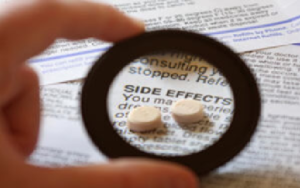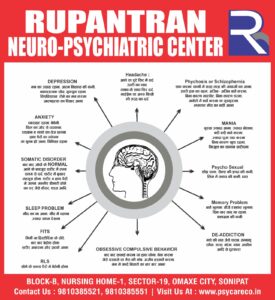
Psychiatric medication is often a critical tool for managing mental health disorders, but it can also come with a range of side effects. Understanding these side effects is important for anyone considering taking psychiatric medication, as well as for those who are already taking these drugs. In this blog, we will discuss some of the most common side effects of psychiatric medication.
One of the most common side effects of psychiatric medication is drowsiness or fatigue. This can be especially pronounced when starting a new medication or increasing the dose, but it often improves over time as the body adjusts to the drug. For some people, drowsiness can be so severe that it interferes with daily activities. In these cases, it may be necessary to adjust the dose or switch to a different medication.
Another common side effect of psychiatric medication is weight gain. This can occur for a variety of reasons, including changes in appetite, an increase in fluid retention, and a reduction in metabolism. For some people, weight gain can be a significant concern, and it’s important to discuss this with your mental health professional. In some cases, they may be able to switch you to a different medication that is less likely to cause weight gain.
Sexual side effects are also common with some psychiatric medications, including a reduction in libido, difficulties achieving an erection, and problems with orgasm. For some people, these side effects can be temporary, but for others, they can be long-lasting. If you are experiencing sexual side effects, it’s important to talk to your mental health professional, as they may be able to switch you to a different medication or adjust the dose.
Gastrointestinal side effects, such as nausea, diarrhea, and constipation, are also common with some psychiatric medications. These side effects often improve over time, but if they persist, it’s important to talk to your mental health professional. In some cases, they may be able to switch you to a different medication or adjust the dose to help reduce these side effects.
Dry mouth is another common side effect of psychiatric medication. This can be caused by a reduction in saliva production and can lead to other problems, such as cavities and gum disease. If you are experiencing dry mouth, it’s important to drink plenty of water, chew gum, and avoid sugary foods and drinks. Your mental health professional may also be able to switch you to a different medication or adjust the dose to help reduce this side effect.
Movement disorders, such as tremors, tardive dyskinesia, and akathisia, are also a potential side effect of some psychiatric medications. These side effects can be severe and can interfere with daily activities. If you are experiencing movement disorders, it’s important to talk to your mental health professional, as they may be able to switch you to a different medication or adjust the dose to help reduce these side effects.
In nut-shell, psychiatric medication can have a range of side effects, including drowsiness, weight gain, sexual problems, gastrointestinal issues, dry mouth, and movement disorders. While these side effects can be concerning, it’s important to remember that they are not experienced by everyone and that many side effects improve over time or can be managed with the help of your mental health professional.
If you are considering taking psychiatric medication or if you are already taking these drugs, it’s important to talk to your mental health professional about the potential side effects. Together, you can make an informed decision about the best course of treatment for your individual needs. Remember, while psychiatric medication can be an important tool in managing mental health disorders, it’s only one part of a comprehensive treatment plan. Psychotherapy,
“Get personalized care and support from our highly trained staff. Book your appointment today.”
